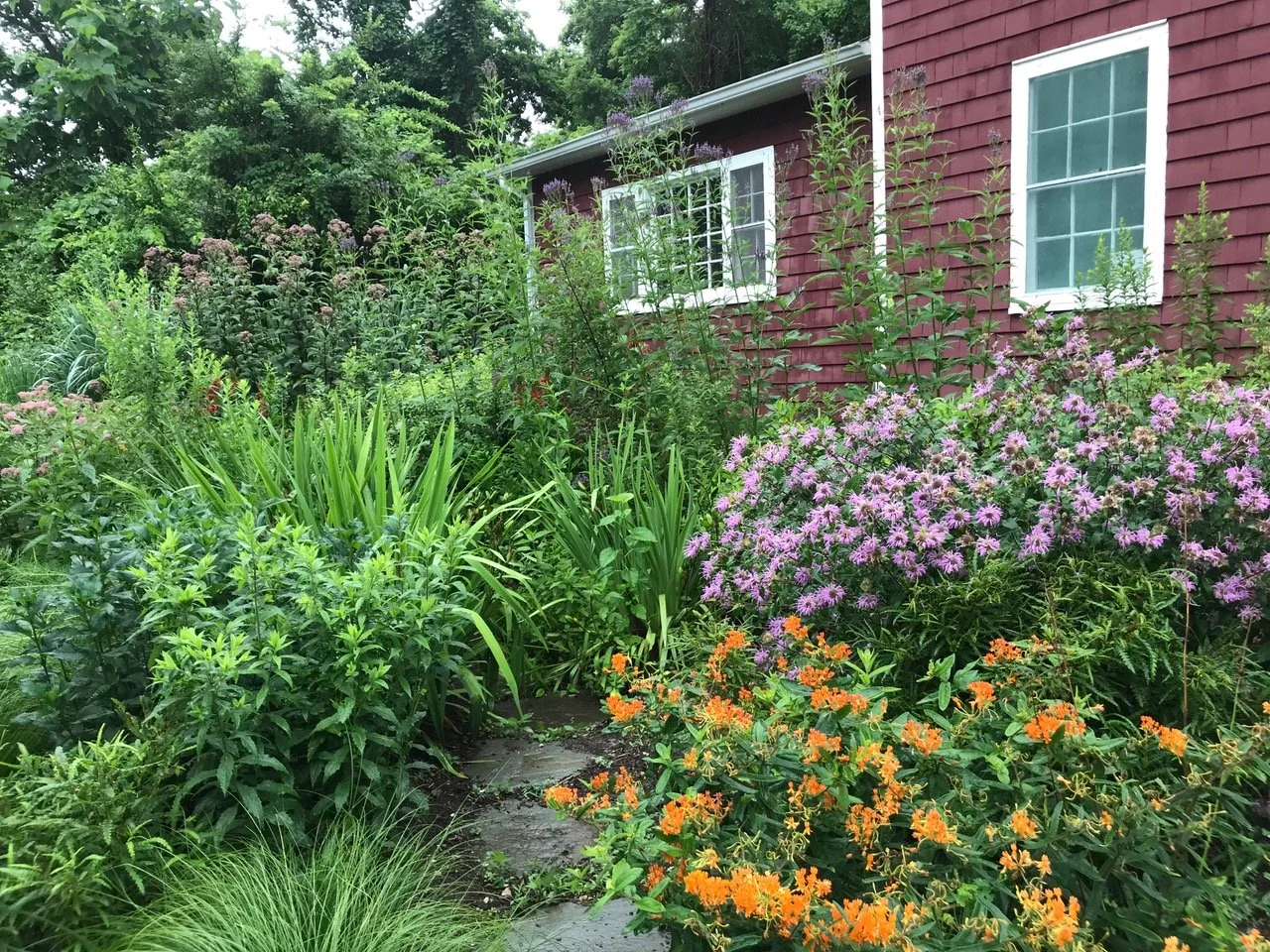Webinar Zoom Link:
Rain gardens are easy to install and maintain, look good year-round and help prevent water pollution.
Planted with native species, these shallow depressions soak up stormwater and support trees, shrubs and flowers that tolerate both wet and dry conditions. Best of all, they provide wildlife habitat that restores ecological balance to our landscapes.
This workshop covers the basics of designing and installing rain gardens, including how to:
Evaluate, amend and prepare the soil
Calculate the best dimensions for the natural irrigation source
Select and maintain the native species
Robin Simmen is a landscape designer and environmental educator who focuses on native plants, sustainable horticulture, and water conservation. Formerly with Brooklyn Botanic Garden and Cornell Cooperative Extension, she holds a B.A. from Cornell University and a masters degree from Conway School of Landscape Design. She is currently a board member and chair of the landscape committee at North Fork Audubon Society.


